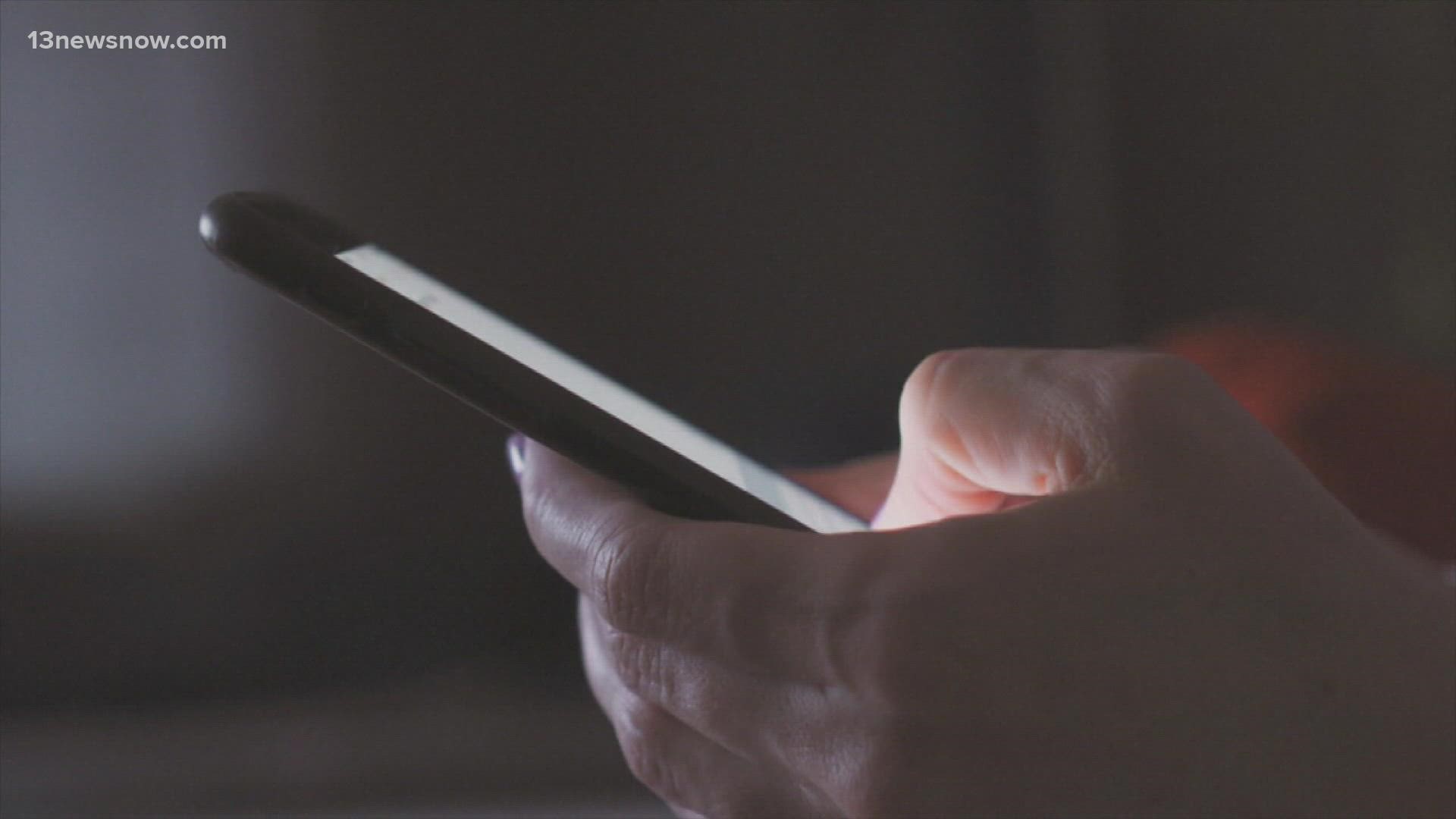VIRGINIA BEACH, Va. — Take it from Virginia Beach mom Mallory Matthias: it can happen anytime or anywhere.
“I'm mad that I let my guard down," Matthias told 13News Now.
This past winter, Matthias went ice skating with her two young children and fiancé Mark outside MacArthur Center. She said she noticed a man watching her as she put her phone inside her shoes, but she didn't think anything of it at the time.
“Once I realized it’d been taken, I kind of lost hope," she said.
She returned from skating laps around the rink, to find the shoe holding her phone had been stolen. She and a nearby worker immediately tried to track the phone, which they were able to do for a limited time afterward, before eventually losing the trail.
Matthias never found the person she said took her phone or the credit cards attached to the back. But what that person took was more than just a piece of electronics. The phone contained most of the photos of her youngest son Noah, who was born during the COVID-19 pandemic.
“Most pictures of Noah, since he was born during the pandemic were on my phone. I lost almost all of the pictures I had of him," she said.
“Every day we have someone coming in with their phone lost or stolen," said Charmaine Johnson, an area retail sales manager for AT&T for the Mid-Atlantic region.
Whether it’s lost or stolen, what are you supposed to do next? Johnson offered some of the following tips:
Re-tracing, tracking, and time
Even if it seems obvious, it's always important to retrace one's steps to ensure you didn't drop your phone out of sight, or leave it somewhere you forgot. Setting up a GPS locator feature from another device can be the difference between finding it or not, so it's important to immediately set up some kind of tracking feature when you first set up the phone.
After 24 hours though, Johnson said it might be time to consider the phone as misplaced, because you don't want to leave open the possibility of someone else finding it.
Even though it may seem like a long shot, if you believe your phone has been stolen and not just lost, it could be helpful to file a police report just in case law enforcement are able to find it.
Wiping it clean
If you've made the decision to get a new phone, it's best to immediately go to your phone carrier to see if they can remotely wipe your phone from the network.
"Let's lock the phone down to get the personal information off it. Let’s contact customer service to suspend the phone. Ensures the SIM card can’t be used, pretty much a paperweight," Johnson said.
As every phone has a serial number, wiping the phone of its information will block that serial number from accessing the network. Doing so, would not change your number to a different one.
What to report, and change
Phones do so much more than just make calls nowadays. They carry personal information about our banking, personal, and other social media accounts.
Considering most people have some form of electronic payment set up on their phone, Johnson said it might be prudent to report the credit card as lost or stolen with your bank even if you still have the physical copies of the cards. This would ensure someone couldn't access your banking information digitally.
Similarly, you'll want to change the passwords on your personal and social media accounts, to ensure no one gains access to your personal information.
Because take it from Matthias: you can never be too cautious in this situation.
“You don’t realize how much of your information you have on your phone. Your doorbell camera. An alarm system with the ability to open your front door with your address. Online shopping with Amazon and Target accounts," she said.
In the end: it’s best to avoid all of this if you can.
Johnson said according to AT&T policy, if your phone is lost or stolen: you’ll still have to pay off the balance of that original phone, as well as the cost of whatever your new phone might cost you (insurance included).

